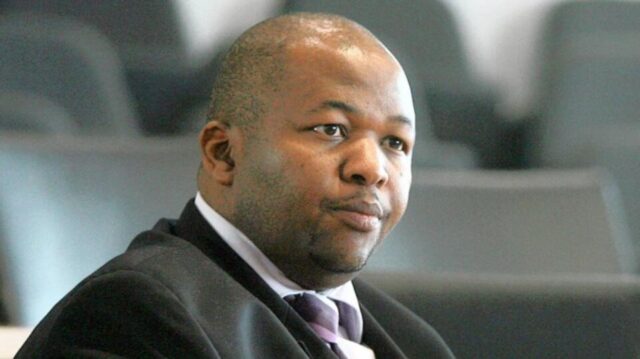Newly-appointed Eskom Group CEO Dan Marokane will have his work cut out for him to keep the lights on as the utility’s generation capacity dwindles, with the energy availability factor teetering at around 50%.
NEWLY-appointed Eskom Group CEO Dan Marokane will have his work cut out for him to keep the lights on as the utility’s generation capacity dwindles, with the energy availability factor (EAF) teetering at around 50%.
Eskom confirmed on Friday that Marokane would assume office as the Group CEO on March, 1, 2024, after his appointment in December 2023.
Marokane, who is currently the interim CEO of the troubled Tongaat Hulett, will take the reins from Eskom chief financial officer Calib Cassim, who steered the ship on an interim basis since André de Ruyter resigned in December 2022 after making claims of massive looting at Eskom and the involvement of senior political figures in corruption.
It was reported in February last year that the CEO position at Eskom is like a poisoned chalice as De Ruyter is the 11th CEO to have left the company in just over 10 years.
Eskom board chairman Mteto Nyati said on Friday that Eskom employees were excited to hear that Marokane would rejoin the company as they remember his hands-on leadership style, which was needed right now.
“The board wishes him well as he steers Eskom in the right direction and leading its turnaround from the front. We have confidence in his capabilities, as well as those of the leadership and staff of Eskom to turn the organisation around,” added Nyati.
“The board also expresses its deepest gratitude to Calib Cassim for his leadership and the stability he brought as the acting group chief executive.
“His dedication and commitment as well as his efforts to keep management and staff focused and motivated have not gone unnoticed. Through his stewardship, Eskom managed to navigate through challenges and achieved significant milestones.”
This comes as Eskom reduced load shedding from Stage 3 to Stage 2 over the weekend due to the return to service of a generation unit and the reduction of partial load losses.
But this improvement in generation capacity was not guaranteed as unplanned outages reduced to 13,792MW of generating capacity, while the capacity out of service for planned maintenance slightly increased to 8,484MW.
The utility said power station general managers and their teams would continue to work diligently to ensure that the 2,150MW of generating capacity was returned to service by Sunday evening.
Eskom has reportedly rejected Mozambique energy company Electricidade de Moçambique’s (EDM) offer to sell 100 megawatts of electricity to South Africa.
About six months ago, Electricity Minister Kgosientsho Ramokgopa and Mozambique’s Energy Minister, Carlos Zacarias, signed the energy agreement that would have seen more energy flow into South Africa and would have led to less strain on a failing and ageing national energy grid.
Eskom reportedly cited that the tariff structures were not acceptable to it and were double the acceptable amount.
“After carefully considering the economic and technical parameters, a decision was taken not to pursue importation from the power plant,” Eskom told the Mail & Guardian.
The absence of 100MW of imported electricity from the Eskom electricity grid would not necessarily make any dent in the stage of load shedding, but it would have made a minor improvement in dispatchable energy.
Energy expert Chris Yelland said Eskom rejected the Mozambique deal because of exorbitant prices the EDM was going to charge the utility.
“The new year begins with the Eskom week-on-week EAF for Week 1 and Week 2 of 2024 at 48.97% and 51.78% respectively, only marginally different from the extremely low EAF values of 49.19% and 50.79% for Week 1 and Week 2 of 2023,” Yelland said.
“I understand this was rejection by Eskom of about 100MW of power from EDM for electricity from a heavy fuel oil-powered Karpowership moored at Nacala in northern Mozambique at a price of about US$250 per MWh, which is currently about R5.00 per kWh,” Yelland said.
– BUSINESS REPORT








